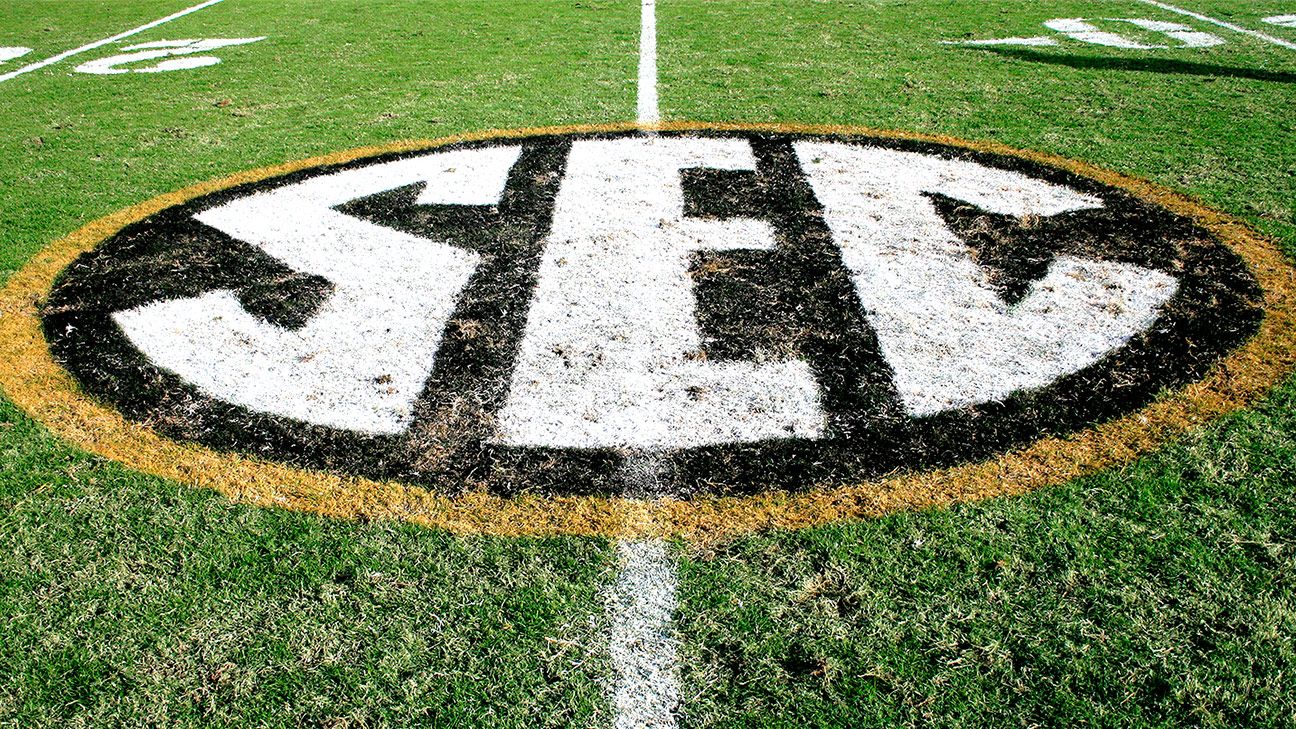
The SEC has expanded its COVID-19 management requirements to include a third weekly test prior to competition and enhanced screening for myocarditis and other heart ailments associated with the coronavirus, the conference announced on Friday.
The SEC, which, along with the ACC and Big 12 are the remaining FBS conferences planning to play football and other fall sports, previously announced a minimum of two PCR tests, which are used to directly detect the presence of the coronavirus, during weeks of competition.
The SEC's Return to Activity and Medical Guidance Task Force has now recommended a third rapid diagnostic test each week for close-contact sports.
The SEC says it will coordinate centralized testing for each of its 14 schools through a third-party provider to "ensure consistency in surveillance and pre-competition testing."
Additionally, the SEC task force recommended that the league's cardiac evaluation mandate include a troponin-level blood test, electrocardiogram, echocardiogram and a medical evaluation by a physician.
"We remain vigilant in monitoring the trends and effects of COVID-19 as we learn more about the virus, and this cardiac evaluation enhances the effectiveness of the protocols already in place," SEC commissioner Greg Sankey said in a statement.
"We are confident in our institutions' ability to provide a healthy environment supported by rigorous testing and surveillance. Our student-athletes have indicated their desire to compete and it is our responsibility to make every effort to deliver a healthy and medically sound environment for providing that opportunity."
Last week, ESPN reported that five Big Ten student-athletes and several student-athletes in other conferences had been diagnosed with myocarditis, inflammation of the heart muscle.
Myocarditis is usually caused by a viral infection, including those that cause the common cold, H1N1 influenza or mononucleosis. Left undiagnosed and untreated, it can cause heart damage and sudden cardiac arrest, which can be fatal. It is a rare condition, but the COVID-19 virus has been linked with myocarditis with a higher frequency than other viruses, based on limited studies and anecdotal evidence since the start of the pandemic.
Debbie Rucker, mother of Indiana offensive lineman Brady Feeney, brought attention to the condition when she wrote that her son was dealing with potential art problems after battling COVID-19. University of Houston defensive lineman Sedrick Williams announced on Facebook last week that he was opting out of the 2020 season because of heart problems associated with COVID-19.
On Thursday, Georgia State quarterback Mikele Colasurdo announced he has been diagnosed with a heart condition as a result of contracting the coronavirus and won't be able to play football this season.















 Phone: (800) 737. 6040
Phone: (800) 737. 6040 Fax: (800) 825 5558
Fax: (800) 825 5558 Website:
Website:  Email:
Email: 






